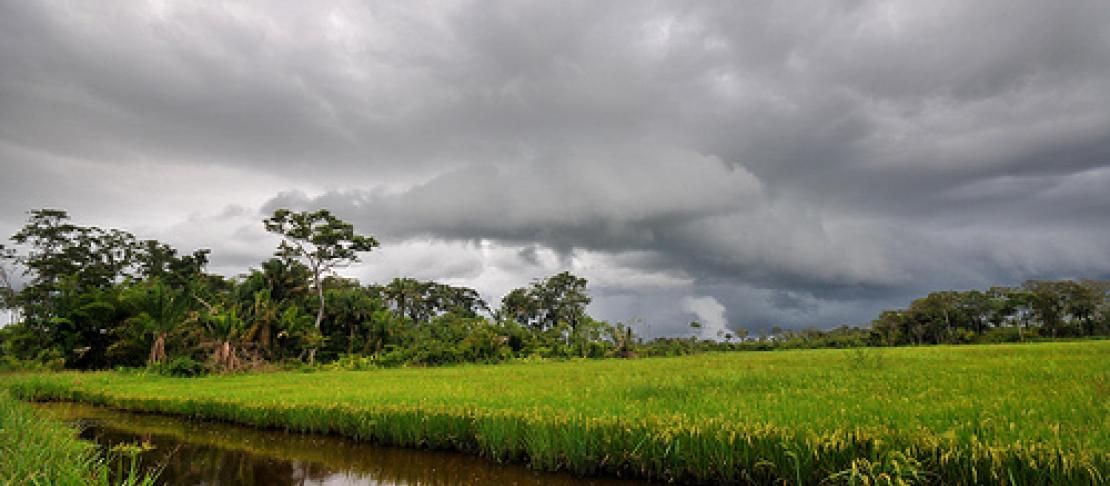Predicting the unpredictable: variable forecasts for variable weather

Edited by Lucy Holt
Irregular climatic variations are a major problem for agricultural production. However, knowledge on weather patterns can allow for the development of seasonal management strategies that account for weather patterns, even as they oscillate. Ultimately, this helps to secure farmers livelihoods.
There are many ways of producing this knowledge. In Senegal, the CGIAR Research Programme on Climate Change, Agriculture and Food Security (CCAFS) has paired local farmers with meteorologists to show the combination of indigenous knowledge and scientific knowledge can equal more than the sum of its parts.
Now, in the Andes, CCAFS has teamed up with International Center for Tropical Agriculture (CIAT), the National Institute for Space Research (INPE), Brazil, and Colombia´s Ministry of Agriculture and Rural Development (MADR), to found the project: Seasonal climate forecasts for agricultural crop and risk management.
The project seeks to propose a methodology that combines the seasonal climate forecasts of the regional climate Eta Model, maintained by INPE, with the Climate Predictability Tool (CPT), developed by the International Research Institute for Climate and Society (IRI), as a starting point to produce seasonal forecasts of crop productivity.
The Climate Predictability Tool (CPT) is a package that facilitates the construction of seasonal climate forecast models, investigations into model validation and producing forecasts given updated data. The CPT design has been tailored to produce seasonal climate forecasts using model output statistic corrections to climate predictions from general circulation models, or to produce forecasts using fields of sea-surface temperatures. Although the software is specifically tailored for these applications, it can also be used in more general settings to perform canonical correlation analysis or principal components regression on any data for any application.
On April 25-27th, the Seasonal Climate Forecasts for Agricultural Crop and Risk Management team held a training session with a number of invited institutions to widen awareness and knowledge of the CPT tool, establish the inter-institutional links which will be necessary to successful apply the tool to agricultural risk management, and ultimately construct a methodology which will apply seasonal climate forecasts with the CPT to improve agricultural output.
Interested in climate information and forecasting? Learn more through about the CCAFS Theme: Adaptation through Managing Climate Risk. Lucy Holt is a Communications Assistant at CCAFS CU Office.


